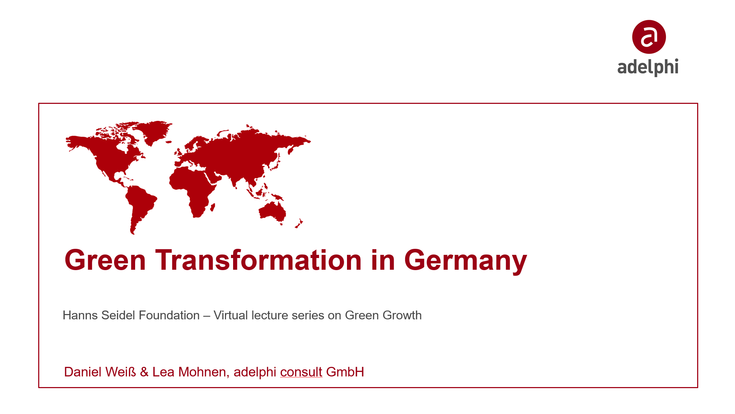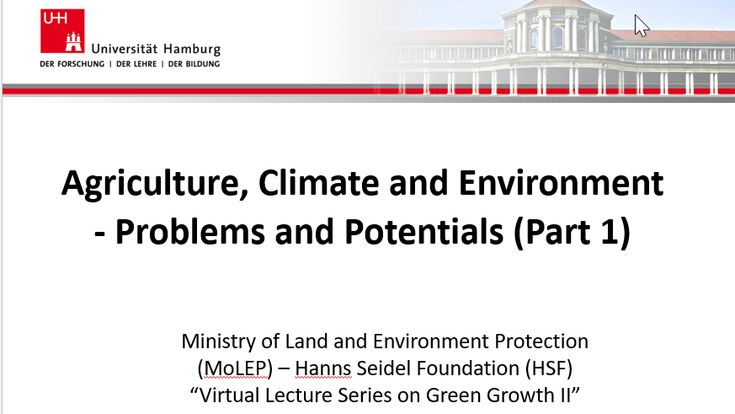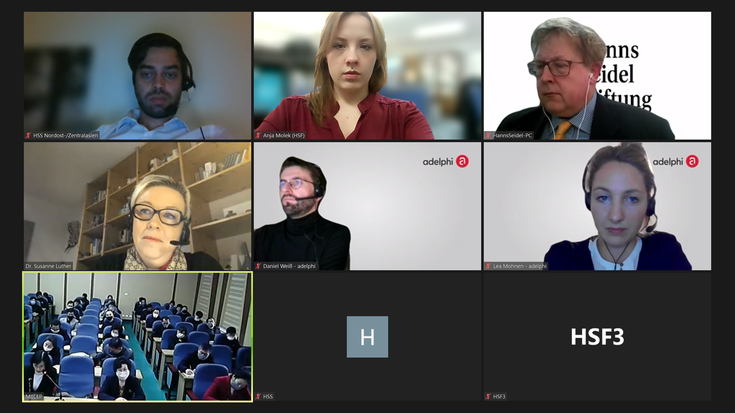Webinar
Second Lecture Series on Green Growth with North Korea

The two-day event was opened by Dr. Susanne Luther, head of the Institute for International Relations of Hanns Seidel Foundation who emphasized the significance of green growth strategies for reconciling sustainable development and economic growth vis-à-vis accelerating climate change. Following Dr. Luther’s opening remarks, Mr. Daniel Weiß, Head of Programme Green Economy at adelphi consult GmbH, a leading consulting firm in the field of environment and development, which contributes to sustainable resource use and sustaining natural life systems, was joined by Ms. Lea Mohnen to commence the first lecture. In their presentation, Mr. Weiß and his colleague provided an in-depth introduction of the German national climate strategy and the development of national climate policies. In the second part of the lecture, the two speakers provided definitions of different types of hydrogen and elaborated on the importance of green hydrogen for the transformation of the German economy. The presenters outlined Germany’s green hydrogen strategy and discussed in detail about the potential of hydrogen as a catalyst for the green transformation of energy systems.

On February 10, Prof. Dr. Uwe A. Schneider, Group Leader Agricultural Economics and Resource Management at the University of Hamburg, gave a lecture titled “Agriculture, Climate and Environment - Problems and Potentials.” As demand for food – in terms of quantity and quality – is rising globally, agriculture and livestock farming exert growing pressure on ecosystems through degradation, pollution, and climate change. For that reason, so Prof. Schneider, it is essential to employ Green Growth strategies in agricultural systems to render them more sustainable in the future. But how can the environmental impacts of agriculture be regulated in a cost-effective manner? In the second part of his speech, Prof. Schneider introduced a variety of scientific crop simulation models which can be used to accurately estimate crop growth but also environmental factors, such as greenhouse gas emissions.

Based on the understanding that a decoupling of economic growth from resource use and adverse environmental impacts is necessary, Green Growth strategies aim to make growth more sustainable and less harmful for nature and society. The recent scientific and political interest in Green Growth goes to show that sustainable development and environmentally friendly growth strategies are being recognized as the most efficient practice for future economies. During both days of the seminar, more than 40 experts from North Korean institutions such as the Ministry of Land and Environment Protection (MoLEP) and the State Academy of Sciences (SAoS) listened attentively to the lectures and asked many profound questions during the consecutive discussion sessions.
